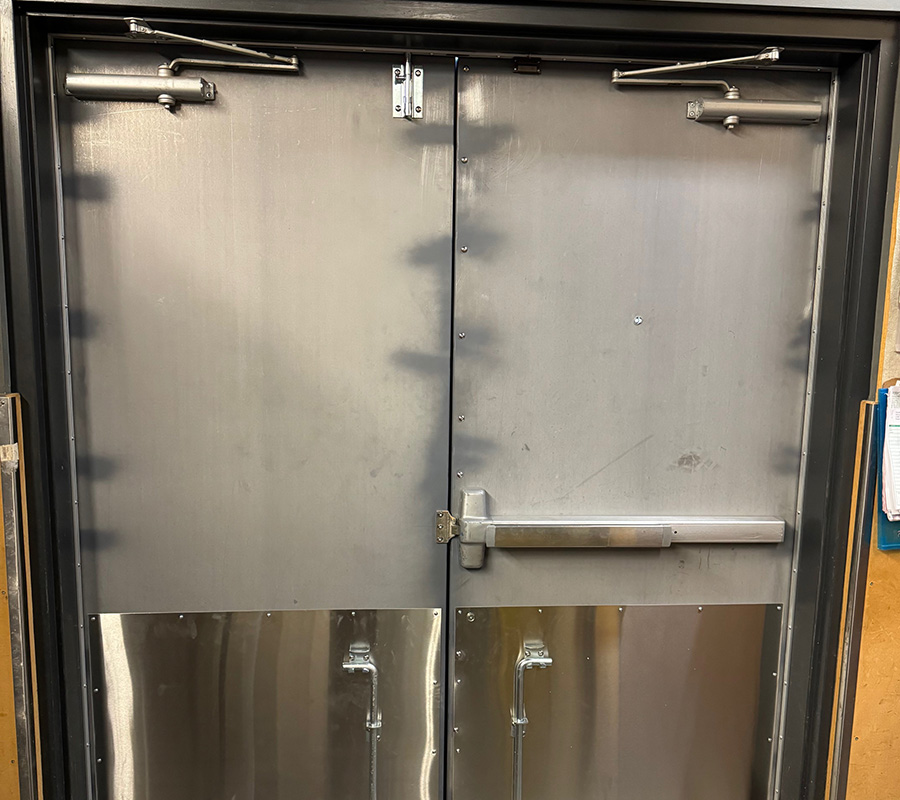Architectural Door Hardware
Architectural door hardware goes beyond just the look of a doorknob or handle. While aesthetics are important, architectural door hardware offers a variety of benefits.

Door hardware benefits:
- Security: Regular maintenance and replacement of door hardware (locks, hinges, handles) ensure up-to-date, functioning locking mechanisms, reducing unauthorized access risks.
- Compliance with Safety Standards: Keeping door hardware compliant with updated building codes and safety regulations helps avoid legal liabilities and ensures the safety of occupants. This includes ensuring fire-rated hardware and panic exit devices are operational during emergencies.
- Aesthetics and Professionalism: Upgrading outdated or worn door hardware improves the building’s appearance, reflecting positively on the business and contributing to a professional image.
- Functionality and Accessibility: Ensuring smooth operation of doors in high-traffic commercial buildings is crucial for daily operations. Installing ADA-compliant hardware ensures accessibility for all individuals, including those with disabilities.
- Energy Efficiency: Properly functioning door hardware, such as door closers and seals, prevents drafts and maintains interior temperatures, enhancing energy efficiency and reducing heating and cooling costs.
- Cost-Effectiveness: Proactive maintenance and timely hardware replacement prevent major, costlier repairs, saving money and minimizing business downtime.
- Durability and Longevity: High-quality door hardware designed for commercial use, when regularly updated and maintained, remains durable and extends the lifespan of the doors.
- Technology Integration: Upgrading door hardware allows integration with advanced security systems like keyless entry, biometric scanners, or smart locks, enhancing both security and convenience.